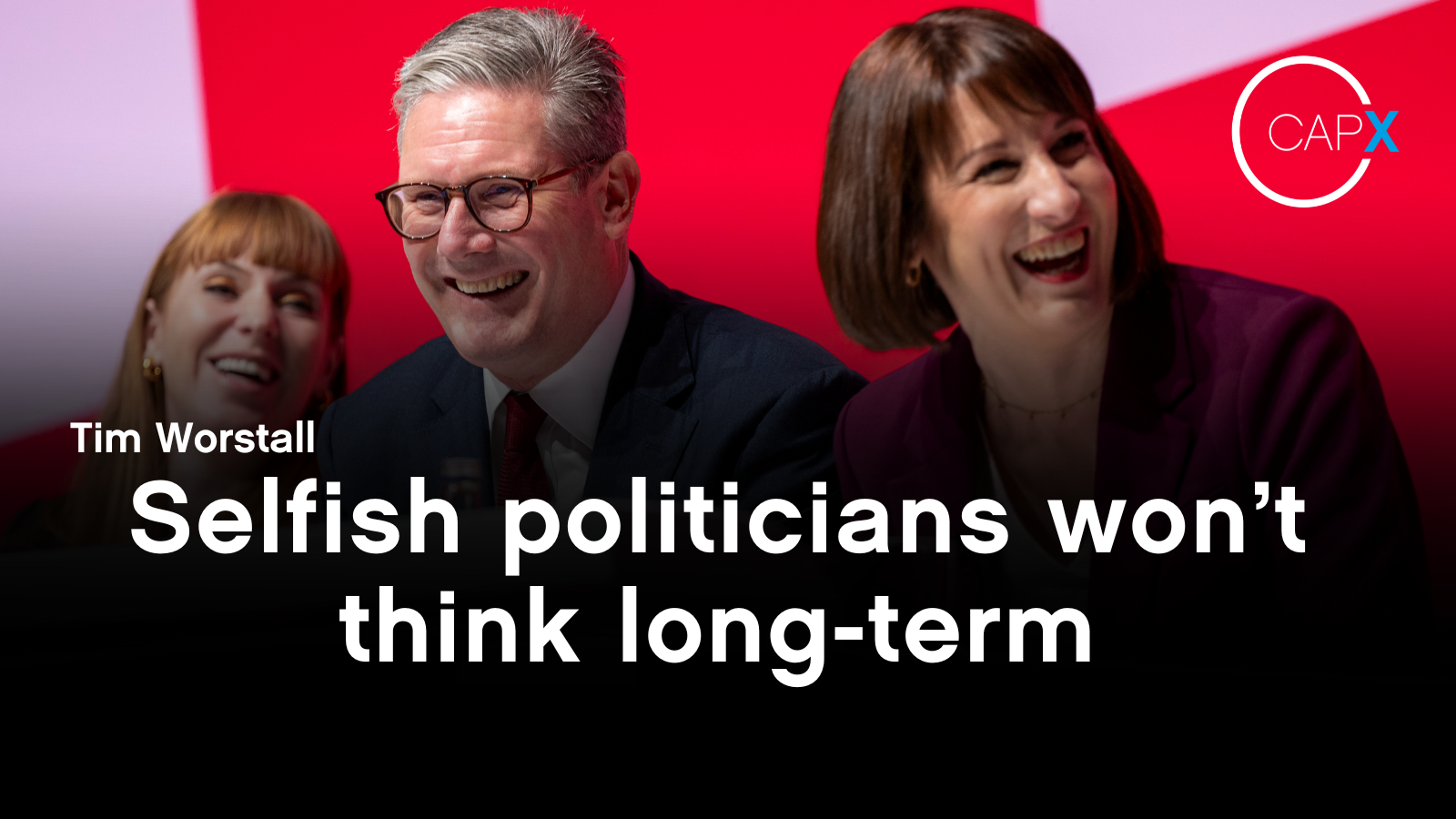Infra
Selfish politicians won’t think long-term

In theory, we should be able to trust government to invest for the future. Government is – in the absence of pikestaffs and burning brands overturning the arrangements – immortal. That makes it the one human institution that can afford to take the long view. As a result, many have concluded that difficult, long-term investment decisions should be placed in the hands of the politicians we elect.
Which is, sadly, exactly where the problems start. For by electing politicians, we then change their incentives. Every politician is keen to remain as one after the next election. So, the political horizon shrinks to the time between elections: in the British system, that’s a maximum of five years. This does not foster a culture of long-termism.
In fact, contrary to popular belief, the institutions with the longest planning horizons in our society are corporations. Shell, BP and the rest regularly make two- and three-decade decisions – to drill this well, or not. Sometimes, even 40- and 50-year ones: whether to pursue an entire field or province. So too with mineral mining companies, those building power stations – and on and on. The private sector – often enough, at least – has far longer planning horizons than the people we elect.
This week provided a fresh example of the governmental time horizon problem:
Ministers are being asked to draw up billions of pounds in cuts to infrastructure projects over the next 18 months despite Rachel Reeves pledging to invest more to grow the economy, the Guardian has learned.
.
Members of the cabinet have been asked to model cuts to their investment plans of up to 10% of their annual capital spending as part of this month’s spending review, government sources said.
.
The demands would mean big projects such as hospital improvements, road building and defence projects being slowed down or stopped altogether as the government looks for ways to repair what they say is a £22bn black hole in the public finances.
The mainstream consensus, whether right or wrong, is that Britain doesn’t invest enough. So, many have claimed, government must invest more to build the necessary infrastructure, as only government is willing to take the long-term view. But as we can see, to Labour’s politicians, with an eye on their voters in 2029, raising train drivers’ wages, or doctors’ salaries, is considered a better ‘investment’ than the infrastructure we so desperately need.
The problem also gets worse. For when money does get invested, there’s always another political insistence: to go for the grand new project, rather than to do essential maintenance on the extant estate. This is why HS2 gets built – if it ever does – while countless potholes on our roads remain unfilled. Maintenance doesn’t offer a red-ribbon-cutting opportunity. Nor does eking out the rail transport budget on unsexy, infill projects – an extra linkage here, a longer platform there – which would make the whole system run better. On the other hand, a photo op next to gleaming rails stretching off into the Midlands mists may make the front page.
It’s possible to test this against history. Take those current objects of public scorn, the water companies. No one is happy with the state of our sewerage system, and it’s easy to wave a hand and say government would do better. Well, yes, it is true in theory that an omniscient, omnipotent and very definitely well-meaning government could allocate the correct amount of societal capital to sorting out the drains.
But that’s not what actually happened. The state-owned water companies used to make profits. Nothing stunning, but nice enough. Those profits weren’t reinvested in the drains. Rather, they went off into general government revenues to be spent upon what politics at the time thought was salient – raising the wages of the miners and the power station workers mostly, possibly the dockers as well.
The way out of this trap – as the Adam Smith Institute and others argued at the time – was to take those water companies out of government control and into the private sector. So that investment and maintenance decisions were not subject to the usual short-term political pressures and timescales and could instead be taken on a proper basis.
Now, yes, we all know that there’s a certain unhappiness with the water companies these days. But it is worth pointing out that the English – capitalist and private sector – water companies have done better than the state-owned Scottish or the council-run (until very recently) Northern Irish systems. If the results still aren’t good enough in England, you have to accept the fact that politicians would have made them worse.
There’s also an easy test of this. Did investment in the water system rise after privatisation? Here’s the regulator, OfWat:
Investment in the industry has roughly doubled since privatisation in 1989, rising drastically in the 1990s. Average totex (total expenditure) has been consistently running at around £10bn a year since 2000, and average capex (capital expenditure – money spent on assets, such as such as buildings, equipment, and technology) has been between £5bn and £6bn a year, reaching the highest point in that range (£6bn) between 2015-2020.
Even the people who disagree with water privatisation agree that the capital devoted did rise.
Yet they were privatised with the aim of stimulating investment without drawing on the taxpayer or being funded through government borrowing. Whilst there has been substantial investment…
Whatever the failings of the water sector, the general lesson is clear: private sector capitalism invests more in crucial infrastructure than government does. We can even suggest that government was investing far too little when it did have control of our sewers. This does rather tell us something about government allocation of investment capital in infrastructure, no?
If we agree that we need long-term investments in critical national infrastructure, the lesson is that these decisions must be taken out of the hands of short-termist, self-interested politicians and put where they belong – within the long-term worldview of the capitalists.
– the best pieces from CapX and across the web.
CapX depends on the generosity of its readers. If you value what we do, please consider making a donation.
Columns are the author’s own opinion and do not necessarily reflect the views of CapX.









